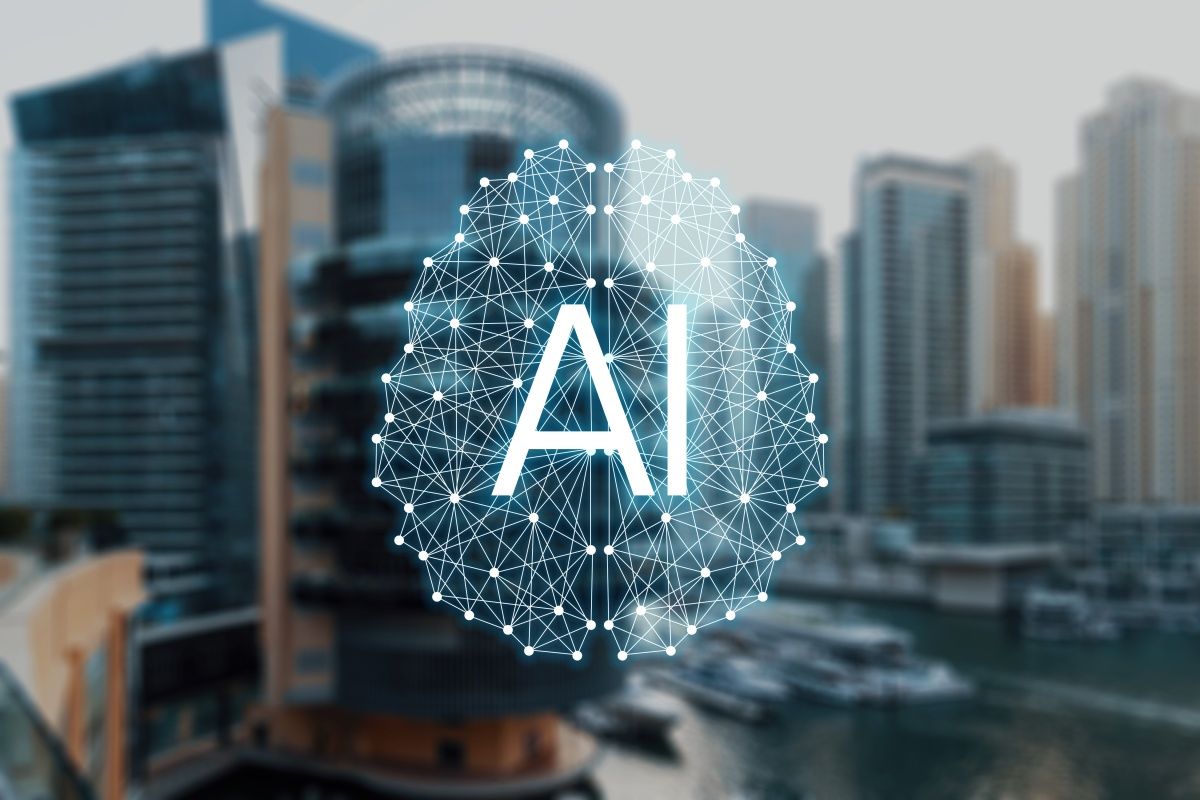The integration of Artificial Intelligence (AI) into government service delivery is transforming public sector efficiency and effectiveness. AI offers unparalleled opportunities for innovation across various domains, from healthcare to environmental policy. This article explores the growing importance of AI in enhancing public trust, revolutionizing public health services, supporting environmental sustainability, driving economic growth, and fostering collaborative innovation in government services.
Key Takeaways
- The mandatory AI registration in the public sector, exemplified by the Scottish AI Register, is set to bolster public confidence and ensure ethical AI usage.
- AI applications like Mia, an AI-powered breast cancer diagnostic tool, demonstrate the potential for AI to revolutionize national healthcare systems while maintaining patient privacy.
- AI's role in environmental policy, such as tracking carbon footprint reduction, is crucial for supporting governments on their net zero journey and sustainable development.
- The economic implications of AI in government services include cost efficiency, budget optimization, and preparing the workforce for an AI-integrated future, fostering economic growth.
- Initiatives like ConnectingYouNow.ai highlight the importance of transparency, ethics, and cross-sector partnerships in creating a responsible and inclusive AI ecosystem.
Enhancing Public Trust through AI Transparency

Mandatory AI Registration in the Public Sector
The integration of Artificial Intelligence (AI) in government services has necessitated a framework for accountability and transparency. Mandatory AI registration marks a significant step towards this goal. In Scotland, a pioneering initiative has been established where all public sector AI usage must be registered. This move is set to enhance public trust and provide a repository of best practices.
The Scottish AI Register serves as a central database, detailing the deployment of AI across various public bodies. Initially voluntary, the register is transitioning to a compulsory system, starting with Scottish Government departments. This phased approach aims to encompass the entire public sector, promoting openness in AI applications.
The mandatory registration process is expected to bolster public confidence, ensuring that AI is utilized in a manner that is both transparent and beneficial to society.
The table below outlines the key aspects of the mandatory AI registration process:
By adhering to guidelines such as those outlined in the [State of California GenAI Guidelines for Public Sector Procurement](#), entities can ensure that their use of generative AI is in line with best practices for procurement, deployment, and training.
The Role of the Scottish AI Register
The Scottish AI Register marks a significant step towards transparency in the use of artificial intelligence within the public sector. Every project utilizing AI will be recorded in this publicly-accessible database, providing insights into the technology's deployment by public bodies. Initially voluntary, the Register will soon require mandatory participation from Scottish Government departments, leading the way for a comprehensive public sector embrace.
The phased approach to mandatory registration underscores a commitment to openness and the ethical use of AI, ensuring that public confidence keeps pace with technological advancement.
The benefits of the Register are manifold, not least of which is the promotion of best practices. It serves as a repository of knowledge and a beacon for responsible AI use, which is particularly crucial in sensitive areas of service delivery. Below is a list of key objectives the Register aims to achieve:
- Increased public confidence through transparency
- A source of best practices for AI deployment
- Encouragement of responsible and ethical AI use
- Support for economically and technically viable AI applications
As Scotland positions itself at the forefront of AI governance, the Register's role in shaping a future where technology and public trust align cannot be overstated.
Impact on Public Confidence and Ethical Considerations
The integration of AI into government services has raised valid concerns regarding public confidence and ethical use. To address these, transparency has become a cornerstone of ethical AI adoption. Agencies are encouraged to be transparent about their AI use, including data sources, algorithms, and decisions made. This approach is believed to foster trust and ensure that AI is used in ways that are both economically and technically viable, making a positive impact across society.
The establishment of mandatory AI registration in the public sector is a significant step towards achieving this transparency. It serves as a repository of best practices and a beacon for responsible AI use.
The Scottish AI Register is a prime example of this initiative in action. It has not only bolstered public confidence but has also provided invaluable support and advice on ethics, impact, rights, and privacy. This collaborative environment is crucial for informed and beneficial AI deployment in public services.
AI in Public Health: Revolutionizing Service Delivery

Case Study: Mia - AI-powered Breast Cancer Diagnostics
The integration of AI in healthcare has taken a significant leap forward with the introduction of Mia, an AI-powered tool for breast cancer diagnostics. Mia's pilot program in NHS Grampian represents a promising advancement in medical technology, aiming to enhance the accuracy and efficiency of cancer screenings.
Recent reports highlight the potential of AI in medical diagnostics, with Mia being a prime example. A Microsoft-powered medical AI, similar in concept to Mia, was able to spot cancer in 11 women that had previously been missed by doctors. This underscores the potential for AI to complement traditional medical expertise, offering a second layer of analysis that could save lives.
The adoption of AI like Mia in public health systems is not just about technological prowess; it's about real-world impact. Ensuring that these tools are used responsibly and effectively can lead to better outcomes for patients and a more efficient healthcare system.
While the benefits are clear, it is crucial to maintain a balance between innovation and patient privacy. The use of AI in sensitive areas such as healthcare requires careful consideration of ethical implications and data protection standards.
The Potential for AI in National Healthcare Systems
The integration of Artificial Intelligence (AI) into national healthcare systems heralds a transformative era in medical service delivery. AI's potential to enhance diagnostic accuracy, personalize treatment plans, and streamline administrative processes cannot be overstated. With systems like Mia leading the way in breast cancer diagnostics, the blueprint for AI's broader application in healthcare is rapidly unfolding.
The benefits of AI in healthcare are manifold:
- Improved diagnostic precision through advanced data analysis.
- Personalized patient care by tailoring treatments based on individual data.
- Operational efficiency in managing patient records and scheduling.
- Predictive analytics for proactive healthcare management.
The promise of AI in healthcare extends beyond individual patient outcomes to encompass system-wide improvements that can lead to significant cost savings and better resource allocation.
However, the integration of AI into healthcare systems must be approached with caution. Patient privacy and the security of sensitive medical data are paramount. As AI systems become more prevalent, ensuring that these technologies are implemented responsibly will be critical to maintaining public trust and realizing the full potential of AI in healthcare.
Balancing Innovation with Patient Privacy
The integration of AI into healthcare systems has brought about a transformative shift in service delivery. AI-powered tools are now essential for managing and improving patient care, but they also raise significant privacy concerns. As AI applications become more prevalent, the balance between innovation and patient privacy becomes a critical issue.
- AI-powered apps can analyze personal health data, suggest lifestyle changes, and even provide support for chronic disease management.
- The potential for AI to improve healthcare is immense, yet it must be deployed with strict adherence to patient privacy laws and ethical standards.
Ensuring the protection of patient data is not just a legal obligation but a moral imperative in the age of AI-driven healthcare.
Healthcare providers must navigate the complex landscape of data protection regulations while fostering an environment that encourages technological advancement. The challenge lies in implementing robust privacy measures without stifling the innovation that can lead to breakthroughs in patient care.
AI and the Environment: Supporting the Net Zero Journey

AI Applications in Environmental Policy
The integration of Artificial Intelligence (AI) in environmental policy is a testament to the technology's versatility and potential for positive impact. AI systems are being deployed to analyze vast datasets, enabling more informed decision-making in areas such as climate change, conservation, and pollution control. These applications not only streamline processes but also provide deeper insights that can lead to more effective environmental strategies.
- Climate Modeling: AI enhances the accuracy of climate predictions by processing complex climate data.
- Wildlife Conservation: Machine learning algorithms help in tracking animal populations and predicting poaching threats.
- Pollution Monitoring: AI-powered sensors detect and analyze pollutant levels, offering real-time data for quicker responses.
- Resource Management: Optimizing the use of natural resources through predictive analytics to reduce waste.
The potential of AI to drive environmental sustainability is significant, offering innovative solutions to some of the most pressing ecological challenges.
The adoption of AI in environmental policy is not just about technological advancement; it's about fostering a sustainable future. As AI continues to evolve, its role in supporting the net zero journey becomes increasingly crucial, aligning with global efforts to mitigate environmental degradation.
Tracking Carbon Footprint Reduction through AI
The integration of AI into environmental strategies has become a cornerstone for governments aiming to meet their net zero targets. AI's ability to analyze vast datasets has enabled more accurate tracking and forecasting of carbon emissions, leading to more informed policy decisions. For instance, AI can predict the impact of various environmental policies before they are implemented, ensuring that only the most effective measures are taken.
- AI-driven analytics for emission reduction
- Forecasting the impact of environmental policies
- Optimizing resource allocation for sustainability efforts
By leveraging AI, governments can not only track and reduce their carbon footprint but also ensure that the process is aligned with climate justice challenges. It is crucial that the carbon footprint of AI itself is also considered, to avoid counterproductive outcomes.
The table below illustrates the potential reduction in carbon emissions through the use of AI in various sectors:
This data underscores the transformative role AI can play in achieving a more sustainable future. However, it is imperative that the deployment of AI technologies goes hand in hand with ethical considerations and public transparency to maintain trust and ensure equitable outcomes.
Collaborative Efforts in AI for Sustainable Development
The integration of AI in sustainable development initiatives is a testament to the power of collaboration across sectors and borders. Governments, NGOs, and private entities are increasingly joining forces to leverage AI in tackling environmental challenges and promoting sustainability. These partnerships are crucial in sharing knowledge, resources, and best practices, ultimately leading to more effective and innovative solutions.
One of the key aspects of these collaborations is the focus on achieving the United Nations Sustainable Development Goals (SDGs). Goal 17, in particular, emphasizes the importance of partnerships in realizing these objectives. The AI for Good initiative by the ITU is a prime example, advocating for inclusive partnerships at all levels to harness AI's potential for the public good.
The commitment to open collaboration and knowledge sharing is pivotal for the advancement of AI applications that benefit both people and the planet. This ethos is not only about innovation but also about ensuring that the progress made is equitable and sustainable in the long run.
The table below outlines some of the collaborative projects and their focus areas, demonstrating the diverse ways in which AI is being applied to support the net zero journey:
By fostering an environment where collaboration is the norm, we can expect to see a continued increase in the number of initiatives that not only push the boundaries of what AI can achieve but also ensure that these advancements are grounded in ethical practices and public trust.
The Economic Implications of AI in Government Services

Cost Efficiency and Budget Allocation
The integration of AI into government services is not just a technological upgrade but a strategic move towards cost efficiency and optimized budget allocation. By automating routine tasks and improving decision-making processes, AI enables public agencies to redirect resources to more critical areas, ensuring taxpayer money is utilized effectively.
- Streamlined operations reduce administrative overhead.
- Enhanced data analysis leads to better-informed policy decisions.
- Predictive maintenance can save on infrastructure costs.
The reallocation of funds from manual processes to AI-driven solutions allows for a more dynamic and responsive approach to public service delivery, potentially transforming the landscape of government expenditure.
Furthermore, the economic benefits of AI are not limited to direct cost savings. The ripple effect of AI adoption can lead to broader economic growth, as it spurs innovation and creates new opportunities in the tech sector. This, in turn, can result in increased employment and a more robust economy.
AI as a Driver for Economic Growth and Innovation
The integration of Artificial Intelligence (AI) in government services is not just a technological upgrade; it's a catalyst for economic transformation. AI's ability to process vast amounts of data and automate complex tasks has significant implications for economic growth and innovation. By streamlining operations and enabling more informed decision-making, AI can lead to substantial cost savings and efficiency gains across various government sectors.
- AI-driven analytics can identify economic trends and inform policy development.
- Automation of routine tasks frees up human resources for more strategic activities.
- AI can enhance the delivery of public services, leading to increased citizen satisfaction.
AI's role in economic development extends beyond immediate efficiency. It fosters an environment where innovation thrives, attracting investments and nurturing a competitive edge in the global market. The potential for AI to revolutionize government services is immense, with the promise of not only improved efficiency but also the creation of new opportunities and markets.
The journey towards an AI-integrated future requires careful planning and investment. Governments must prioritize AI strategies that align with their economic goals, ensuring that the benefits of AI innovation are maximized while mitigating any potential risks.
Preparing the Workforce for an AI-Integrated Future
As governments integrate AI into their services, preparing the workforce for this shift is crucial. It involves understanding AI's impact on industry and identifying skills and knowledge gaps. Developing AI literacy among employees is a foundational step, ensuring that all levels of the workforce can engage with AI tools effectively.
To foster an AI-friendly culture, it's essential to encourage innovation and adaptability among employees. This can be achieved through continuous learning opportunities and by promoting an environment that supports experimentation and the sharing of best practices.
The transition to an AI-integrated future is not just about technology; it's about people. Ensuring that employees are equipped with the necessary skills and mindset to work alongside AI will be a key determinant of success.
Here are some steps to consider for workforce preparation:
- Understand AI's impact on industry
- Identify skills and knowledge gaps
- Develop AI literacy among employees
- Foster an AI-friendly culture
- Encourage continuous learning and adaptability
Fostering Innovation and Collaboration in AI Development

ConnectingYouNow.ai: A Case for Unified Public Services
ConnectingYouNow.ai represents a significant stride in organisational unified intelligence, aiming to simplify public service access for all citizens, particularly those with sensory loss or limited digital proficiency. The initiative underscores the necessity of transparency, ethics, and trust in AI, aligning with the principles of the Scottish AI Register.
The commitment to the AI Register is more than a formality; it's a pledge to open collaboration and the ethical advancement of AI for the public good. This transparency is crucial for nurturing public confidence and fostering innovation that genuinely benefits citizens.
ConnectingYouNow.ai's vision resonates with the public sector's broader mission to harness AI's power responsibly, ensuring that its deployment in services like healthcare and environmental policy is both effective and respectful of citizens' rights.
The following points highlight the core values and commitments of ConnectingYouNow.ai:
- Emphasis on enabling responsible AI adoption
- Dedication to open collaboration and knowledge sharing
- Support for the Scottish Government's vision for the AI Register
- Continuous collaboration to responsibly unlock AI's potential for public sector transformation
The Importance of Cross-Sector Partnerships
Cross-sector partnerships are pivotal in the realm of AI development for government services. Collaboration between government agencies, private entities, and academia can lead to groundbreaking innovations that address complex societal issues. Such alliances allow for a pooling of resources, expertise, and perspectives, which is essential for tackling 'wicked problems' that no single sector can solve alone.
The benefits of these partnerships are not just theoretical. For instance, Deloitte reports that government agencies collaborating with other sectors have seen a 10x boost in mission effectiveness. This significant enhancement underscores the transformative potential of cross-sector cooperation.
- Knowledge Sharing: Partnerships facilitate the exchange of insights and best practices.
- Resource Optimization: Leveraging strengths across sectors can lead to more efficient use of resources.
- Innovation Acceleration: Diverse perspectives drive faster and more creative problem-solving.
By transcending traditional boundaries, these partnerships are reshaping how government services are delivered and how challenges are approached, ensuring that the journey towards innovation is both well-informed and public-benefit focused.
Building a Responsible and Inclusive AI Ecosystem
The journey towards a responsible and inclusive AI ecosystem is marked by the commitment to open collaboration and knowledge sharing. This commitment is not only a moral imperative but also a strategic advantage in driving innovation that serves the public interest.
To achieve this, several steps are being taken:
- Establishing clear guidelines for ethical AI use
- Promoting transparency in AI applications
- Ensuring inclusivity in AI development
- Fostering public-private partnerships
The AI Register is a testament to the dedication to transparency and ethics in AI. It serves as a beacon for best practices, helping to ensure AI's positive impact across society.
The Office of Management and Budget's (OMB) guidance on responsible AI adoption is a pivotal move towards a unified approach in federal agencies. It underscores the importance of a transparent, accountable AI ecosystem that includes all stakeholders in the conversation.
Conclusion
The integration of Artificial Intelligence (AI) into government service delivery is not just a trend; it is a transformative movement that is reshaping how public services are designed, delivered, and experienced by citizens. As we have seen through various initiatives, such as Scotland's pioneering AI Register, transparency and ethical considerations are paramount in gaining public trust and ensuring that AI serves the common good. The commitment to open collaboration and the phased approach to mandatory registration underscore the importance of responsible AI deployment. With AI's potential to enhance efficiency and drive innovative solutions, it is crucial for governments to continue fostering environments where AI can thrive in an ethical, transparent, and beneficial manner for all members of society.
Frequently Asked Questions
What is the purpose of the Scottish AI Register?
The Scottish AI Register is a publicly-accessible database that logs every project using AI within the public sector, providing information about the technology's use in projects developed by public bodies. Its purpose is to increase transparency, build public confidence, and ensure ethical use of AI in public services.
Why is mandatory AI registration important for public sector transparency?
Mandatory AI registration ensures that the use of AI in the public sector is conducted openly and transparently. It allows the public to have increased confidence that AI is being used responsibly and provides a source of best practice, ensuring AI's impact is positive and viable across society.
How does AI contribute to the net zero journey?
AI applications can analyze large datasets to optimize energy usage, forecast renewable energy outputs, and enhance environmental policy decisions. This supports the net zero journey by enabling more efficient resource management and helping to track carbon footprint reduction.
What are the economic implications of integrating AI into government services?
The integration of AI into government services can lead to cost efficiency and better budget allocation. It also acts as a driver for economic growth and innovation, creating opportunities for workforce development and new industries.
How does AI impact public health service delivery?
AI has the potential to revolutionize public health service delivery by providing advanced diagnostic tools, like Mia for breast cancer detection, and optimizing healthcare systems. It can improve patient outcomes while ensuring privacy and ethical considerations are maintained.
What is the role of cross-sector partnerships in AI development for public services?
Cross-sector partnerships are crucial for fostering innovation and responsible AI development. They enable knowledge sharing, align with core values of transparency and ethics, and support the deployment of AI solutions that serve the public's best interests.



